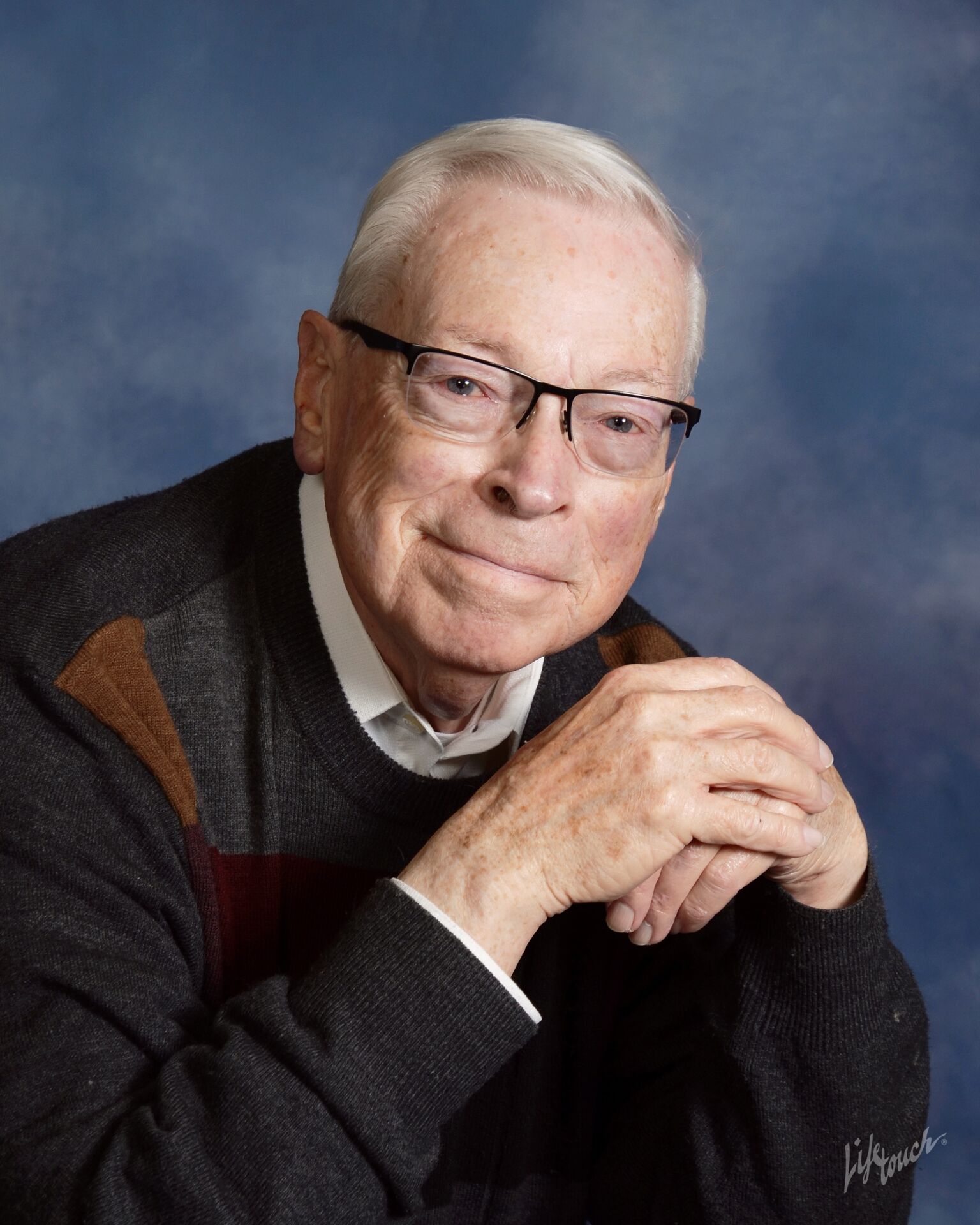Focus on What's Important
Detachment – Part 1

By Dr. Robert Leichtman
Summary
Our ability to gather and focus our attention can concentrate our hope, enthusiasm, and positive expectation to empower our well-being and success. Unfortunately, the ability to be single-minded can cause harm in two major ways. The first danger to us is focus too narrowly in a tunnel vision that excludes many aspects of the larger picture or context of a situation. This can result in missing or neglecting important facts and connections that are needed to comprehend and successfully engage complex situations. The second danger is even worse: the ability to concentrate our thoughts and emotions can weaponize our outrage, fear, and despair and project them as bullets into our opposition, whether this is our adversary or a part of our self that has failed to perform well.
One of the factors that can trap or liberate us from distress and disease is the ability of our mind to direct our attention and choose how we will:
define our self
interpret our circumstances
choose our attitude
and how we will respond
Thus, we have the capacity to form definite judgments about:
who we are and how we are doing
what our role in life is
our responsibilities
our rights
and the meaning of any problems we have
The great danger in this activity is that we often fail to apply much wisdom to this process, and in fact, allow most of our choices to be made for us by passively permitting:
other people or mass consciousness to tell us what to think
our old habits and beliefs to dominate all new choices
or we exercise no thought at all and simply allow our automatic subconscious reactions make the choice
Unfortunately, this usually means decisions are made by whatever fear, anger, despair, guilt, desire, frustration, or excitement dominates us at the moment. In effect, many people are continually focused on:
what annoys them
the distress and disability of their body
an unpleasant mood and outlook
past traumas and failures
and their great burdens and challenges
In the process, most healthy alternatives are lost, and an identity and lifestyle are built around our dominant beliefs about what distresses us and their probable cause. This includes all the baggage and limitations that accompany these beliefs.
If people were truly honest, we might meet those who would introduce themselves as:
1—Hi. Mom called me Mary, but you can call me Bored and Depressed. I am a middle-aged housewife with little joy in life, a boring family, a dull life, and a bleak future. I am just an average person with no special talents, accomplishments, or destiny.
Of course, they don’t say these words overtly, but after you get to know them, bored and depressed perfectly describes who they are.
2—Others build a life around their physical illness and think of themselves as a walking exhibit of diabetes, high blood pressure, and heart disease, chronically fatigued, rarely happy, with an unfulfilling or no career, and another eighteen years to go before retirement. There are no special abilities or accomplishments other than surviving a bland marriage and a succession of bad bosses. If honest, they might introduce themselves as: Hi. Dad called me Frank, but you can call me A Bad Heart and Diabetes. I am known for my illness and how weak and fragile I am.
Again, these individuals don’t say these words, but after you get to know them, these terms perfectly describe their personality and how they behave and react to most events.
3—Others may be dominated by anxiety and insecurity that they have never conquered. If they were honest, they might introduce themselves as: Hi. My mother called me Suzy, but you can call me: A Basket Case. I am all nerves all the time, and I can’t wait to tell you all about it and how difficult my life is.
Again, such people do not use these overt words, but once you get to know them this description perfectly fits their personality and behavior.
4—The great tragedy is the vast numbers who identify as victims of all kinds of afflictions and oppression. These are people who have resigned themselves to despair, bitterness, and helplessness. They rarely give serious thought to recognizing they have the choice and opportunity to make radical modifications—not so much in external circumstances as in:
their sense of identity how they view their limitations as permanent
their choice of responding to these situations
and their power to take charge of their situation
In all of these individuals described here, there may be some good days, fun times, genuine achievements, and even moments of contentment and satisfaction. But eventually, they return to chronic suffering in pervasive boredom, emptiness, lack of fulfillment, and frequent frustration and disappointment.
These stories describe and emphasize examples of common suffering caused by the mistakes that many good people make. The mistake is they have allowed themselves to be defined by their distress about outer circumstances and the example and voices of misguided people. These are the factors that seem to determine:
who they are
their limitations
and their destiny
By default or neglect they have failed to consult with their higher human and spiritual resources. As a result, they become stuck in a state of anxiety, sadness, and frustration.
There are tons of formal studies and investigations into the thousands of people who are:
depressed and anxious
addicted to alcohol and drugs
always upset, protesting, and blaming society
or are convinced the bigotry of others have ruined their life
What is neglected are studies of those who have struggled with their challenges and—often without much professional help—have successfully managed to overcome:
addiction
poverty
neglect and abuse
harsh social conditions
and the dark influence of being around grumpy, humorless, joyless parents and spouses
Though they were heavily influenced by these factors, they still were able to become happy and fulfilled, able to enjoy life and thrive, and compensate for their difficulties. They refuse to be controlled by:
their rotten past
ongoing challenges
or their peers who never believed they could change
When you talk to such people and ask the right questions they reveal that: no, they were not just lucky to escape disaster. They experienced all the common disappointing circumstances that devastate so many. They just knew that:
outer circumstances did not have to control everything about them
they did not have to follow all their peers into misery
they could be different
that they could choose to respond to difficulty without anger, despair, or helplessness
they could compensate or work around some of the limitations that persisted
In other words, they recognized that they had some good choices. They believed the ghost of their past traumas did not have to control their present. Instead, they knew they could take charge of their feelings, thoughts, intentions and expectations—even if they could not yet control their body or outer circumstance.
And they knew that obsessing on their difficult past or present can cause them to lose the future. Thus, every good opportunity in the present must be appreciated and engaged.
These people discovered a powerful secret of successful living, which is the talent for making skillful use of their ability to make good choices. They refused to continue passively accepting whatever life dumped on them and then just reacting to it as good, bad, or bearable. They chose a healthy, constructive and proactive response, knowing that there is no law that demands that:
we must resent every criticism or resistance we encounter
we must be depressed by every loss we experience
we must regret every mistake or failure that happens
we must forever mourn every good thing we expected but never happened
This does not mean that we go around ignoring reality or negative events and circumstances. But there are people who think only in terms of black and white, all or none, good or bad, and no shades of gray, pink, blue, or green. They either love or hate people, events, circumstances. Everything else is ignored, and there is no choice where we conclude:
well, we will just try again…perhaps a different way
there are ups and downs to every venture, and it is unrealistic to expect perfection all the time
besides, every day is a mixture of the great, the ordinary, and a few disappointments
overall, most of it is good
and if we have a bad day, we know how to make the best of it
It is very sad that many people rarely think this way.
The ability to choose is a capacity all of us have. We can decide what kind of sandwich we will have for lunch, what TV show we will watch tonight, and whether we will shop for groceries today or tomorrow. But these are not the life-changing choices that will determine whether we become a chronic victim of major distress and limitations.
nonsense and propaganda
the temptation to be outraged or frightened,
whether to believe or ignore criticism or flattery
how to cope with opportunities that involve some risk of failure
assorted offenses and insults–whether to be anxious or ignore them
to feel defeated or ready to try again
if it is okay to feel guilty or decide that we should have a clear conscience
whether to give up when no one thinks we are on the right path
or to move boldly ahead because we have a vision of what we can be and do

So where do these comments leave us—we who are interested in being a more healthy person and more attuned to our spiritual possibilities. We can deny that these ideas have any application to our personal situation and tell our self that:
our situation is so severe, so debilitating, so limiting, that nothing can help, and then go back to sulking in righteous despair
or we can resort to pious platitudes about all things are possible with God, and we still have faith that we will be helped as a well-loved child of God
But is this just the usual psychobabble? Is this truly how you think and behave in your daily activities? Is there any hint of your life moving in that direction? Is the first option to accept your helplessness a delusion? Is the second option to wait for a divine rescue just a pleasant illusion?
Instead of either of these possibilities we can choose to do (not just believe and hope) what is effective and proactive. Reinforcing this choice is the simple fact that, when God helps us, the divine usually works by giving us the guidance and strengths to help our self. In other words, God more often works through us instead of around us. Obviously, we can do better when we choose to stop identifying with illness, gloom, doom, outrage, and what discourages us. Better choices await us.
Thus, if our body hurts and parts function poorly, do we concentrate primarily on:
our distress and annoyances
or our ability to manage and heal our body
and appreciate all the other parts that function well?
If we feel oppressed and limited in key areas by events, prejudice, or neglect, do we spend all our time:
nursing grievances,
complaining how bad our life has been,
and attacking our enemies?
Or do we decide that these people and events have already taken up too much of our time and energy. Instead, we choose to give all our attention to doing what we can to add joy and fulfillment to our daily activities. If other people think and act in ignorant and stubborn ways, we no longer care about them or their beliefs. Our life, success, and happiness are too important to waste on disappointment or resentment about them.
The great mystery is this: why do people insist on giving so much attention to their pain and suffering, their illness, and other distress? Don’t they understand that instead of this, they have the option to focus on what they can do to overcome or compensate for their distress? Why identify largely with their apparent limitations and suffering, when they could focus on their strengths and creative possibilities?
I am not suggesting that we ignore any legitimate illness, distress, or limitation. But what is important is to appreciate that we are never just a pile of suffering and limitations, or just a heap of unhappy memories. Yes, sometimes we are overwhelmed and it seems that way, but that only happens when we fall down the rabbit hole of darkness and despair. When we can think again, we know that there is more to life than our distress, aloneness, and hopelessness. The voice of our gloom and doom is just trying to bully its way over us.
I suggest that—if this ever happens to you—that you remind yourself that you may have to listen to various bullies and arrogant bigots from time to time, but you don’t have to believe them. And the same applies when your subconscious department of gloom and anger tries to bully you. You may have to acknowledge its presence, but you do not have to believe it. You are free to consider other options about:
who you truly are in your inner essence,
what you can do,
and who you can become.
The first thing you can become is someone who is aware than you can choose to apply better understanding and attitudes to your life and experiences. You can choose to revise your perspective about your:
opportunities
resources
strengths
and access to your higher human and spiritual possibilities.
Perhaps if you lay aside some old attitudes and beliefs you will discover more about your unused or misused abilities to create healthy changes in how you think, what you feel, and what you can do to build a more healthy and fulfilling life.
Think on these things

Course Overview
Course Overview Overview of Active Meditation Discourses & Course Objectives By Dr. Robert Leichtman These discourses are on the theme of making the right choices

Part 2: Making Better Choices
Making Better Choices Detachment – Part 2 By Dr. Robert Leichtman Script: Colossians 3: 9-11 Putting on the New Self …Do not lie to one

Part 3: Working with Our Strengths
Working with Our Strengths Detachment – Part 3 By Dr. Robert Leichtman Scripture: Psalm 8 LORD, our Lord, how majestic is your name in all
